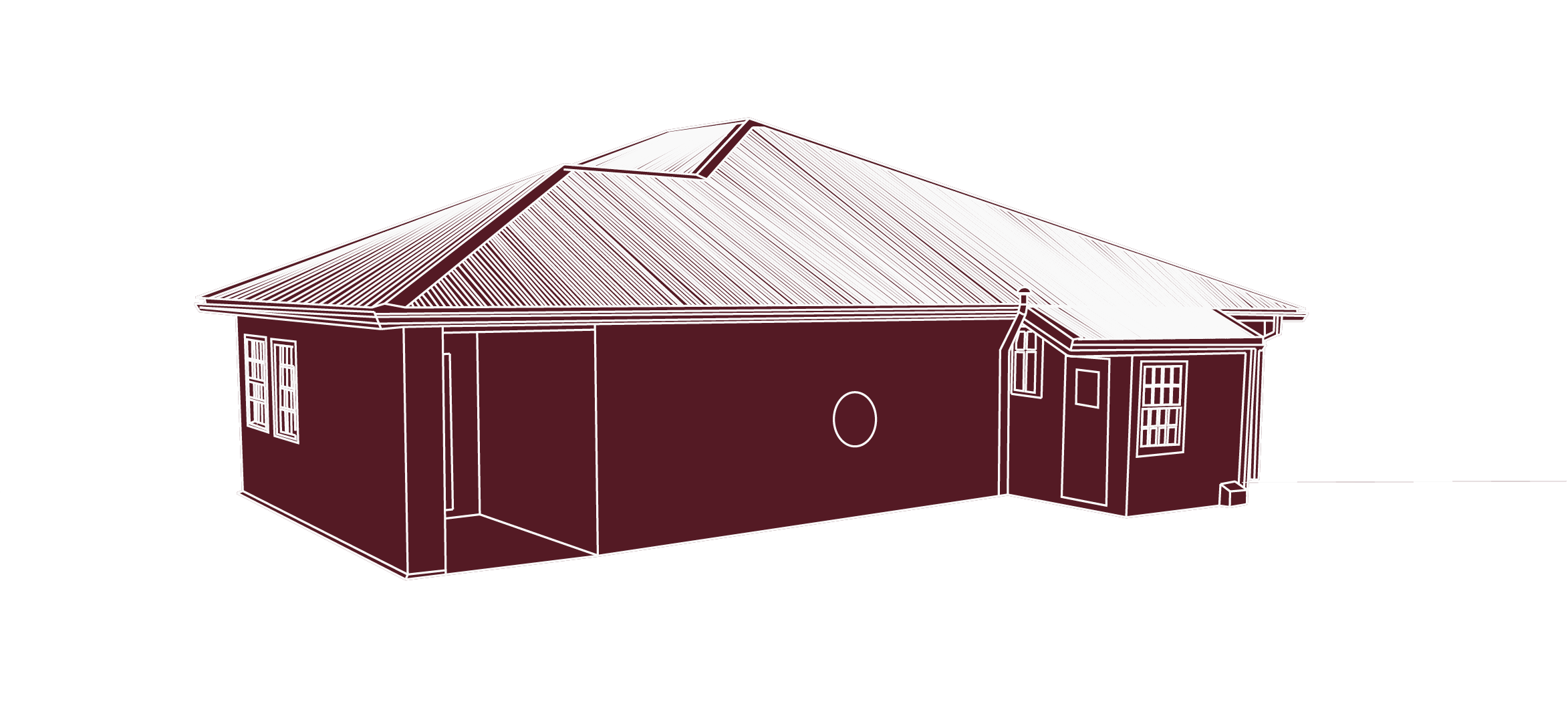Introduction
The first weather observations held in the Archives start at Port Louis on 10 October 1838 and are log entries by the naval officer in charge such as “Fresh breezes with Snow Storms”. By the 24th the wind direction was also recorded. From 22 October 1839 the thermometer reading at noon was also entered. These ship’s logs were kept until Saturday 22 January 1842 when Lieutenant Governor Moody officially landed under a salute from HMK Sparrow.
Captain Sir James Clark Ross kept a comprehensive meteorological journal on board HMS Erebus and from 6 April until 8 September 1842 these were taken at Port Louis. These are available in pages 428-438 in his 1847 book “Voyage to the Southern Seas”.
With the arrival of a barometer and two thermometers observations were taken at Cape Pembroke Lighthouse, Stanley from 1859 with occasional intervals but were unreliable. With the visit of the Scotia in January 1903 record keeping by lighthouse keepers improved. Mr Mossman, the meteorologist of the Scotia also set up a sunshine recorder at Stanley under the supervision of the Governor.
Mr Cobb’s thermometer and his anemometer stand
The Colonial Manager of the Falkland Islands Company Ltd, Frederick Cobb, set up a good weather station in Stanley in 1874 and continued until December 1883.
As part of the terms of their licenses the whaling companies operating in South Georgia were required to make simple meteorological observations and up to World War II the station at Grytviken transmitted synoptic observations to Uruguay. Bases were maintained in the Falkland Islands Dependencies from 1944 and meteorologists were attached to all of the bases.
From 1950 meteorological services in the Falkland Islands and the Dependencies were coordinated into a unified service.
Government Files
![]() NAT-MET-1-2. Rain gauge. Care of by Harbour Master.pdf291.85 KB
NAT-MET-1-2. Rain gauge. Care of by Harbour Master.pdf291.85 KB
![]() NAT-MET-1-3. Meteorological station at Stanley. Harbour Master suggests establishment of.pdf3.56 MB
NAT-MET-1-3. Meteorological station at Stanley. Harbour Master suggests establishment of.pdf3.56 MB
![]() NAT-MET-1-4. Climatic conditions of the Falkland Islands.pdf2.88 MB
NAT-MET-1-4. Climatic conditions of the Falkland Islands.pdf2.88 MB
![]() NAT-MET-1-5. Meteorological records kept at Cape Pembroke Lighthouse 1922.pdf459.07 KB
NAT-MET-1-5. Meteorological records kept at Cape Pembroke Lighthouse 1922.pdf459.07 KB
![]() NAT-MET-1-7. Summary of meteorological observations for the year 1924.pdf424.4 KB
NAT-MET-1-7. Summary of meteorological observations for the year 1924.pdf424.4 KB
![]() NAT-MET-1-8. Meteorological temperatures taken at Darwin Harbour East Falkland.pdf253.12 KB
NAT-MET-1-8. Meteorological temperatures taken at Darwin Harbour East Falkland.pdf253.12 KB
![]() NAT-MET-1-9. Damage to public works caused by gale 2 September 1936.pdf515.03 KB
NAT-MET-1-9. Damage to public works caused by gale 2 September 1936.pdf515.03 KB
![]() NAT-MET-1-10. Taking over of meteorological station by Agricultural Dept.pdf674.88 KB
NAT-MET-1-10. Taking over of meteorological station by Agricultural Dept.pdf674.88 KB
![]() NAT-MET-1-11. Training of meteorological observers.pdf1.37 MB
NAT-MET-1-11. Training of meteorological observers.pdf1.37 MB
![]() NAT-MET-1-12. Establishment of new meteorological station.pdf3.45 MB
NAT-MET-1-12. Establishment of new meteorological station.pdf3.45 MB
![]() NAT-MET-1-13. Meteorological reports.pdf201.43 KB
NAT-MET-1-13. Meteorological reports.pdf201.43 KB
![]() NAT-MET-1-14. Erection of an ionospheric measurement station in the vicinity of Stanley.pdf877.35 KB
NAT-MET-1-14. Erection of an ionospheric measurement station in the vicinity of Stanley.pdf877.35 KB
![]() NAT-MET-1-15. Damage caused in Stanley by hurricane.pdf112.44 KB
NAT-MET-1-15. Damage caused in Stanley by hurricane.pdf112.44 KB
![]() NAT-MET-1-16. Meteorological service local observing stations.pdf1.48 MB
NAT-MET-1-16. Meteorological service local observing stations.pdf1.48 MB
![]() NAT-MET-2-1. Air Ministry Radio Sonde Staff.pdf3.42 MB
NAT-MET-2-1. Air Ministry Radio Sonde Staff.pdf3.42 MB
![]() NAT-MET-2-2. Meteorological service in war.pdf876.08 KB
NAT-MET-2-2. Meteorological service in war.pdf876.08 KB
![]() NAT-MET-2-3. Meteorological service.pdf9.3 MB
NAT-MET-2-3. Meteorological service.pdf9.3 MB
![]() NAT-MET-2-4. Meteorological reports Stanley.pdf3.19 MB
NAT-MET-2-4. Meteorological reports Stanley.pdf3.19 MB
![]() NAT-MET-2-5. Camp meteorological stations.pdf571.6 KB
NAT-MET-2-5. Camp meteorological stations.pdf571.6 KB
![]() NAT-MET-2-6. Met lease of land.pdf737.18 KB
NAT-MET-2-6. Met lease of land.pdf737.18 KB
![]() NAT-MET-2-7. Radio Sonde building.pdf212.83 KB
NAT-MET-2-7. Radio Sonde building.pdf212.83 KB
Reports
![]() The Climate and Weather of the Falkland Islands - C E P Brooks 1919.pdf711.18 KB
The Climate and Weather of the Falkland Islands - C E P Brooks 1919.pdf711.18 KB
![]() FIDS Meteorological Service - Annual Report and Tables - 1950 to 1953.pdf12.51 MB
FIDS Meteorological Service - Annual Report and Tables - 1950 to 1953.pdf12.51 MB
![]() FIDS Meteorological Service - Annual Report and Tables - 1954 to 1955.pdf12.4 MB
FIDS Meteorological Service - Annual Report and Tables - 1954 to 1955.pdf12.4 MB
![]() FIDS Meteorological Service - Annual Report and Tables - 1956 to 1957.pdf15.15 MB
FIDS Meteorological Service - Annual Report and Tables - 1956 to 1957.pdf15.15 MB
![]() FIDS Meteorological Service - Annual Report and Tables - 1958 to 1959.pdf13.09 MB
FIDS Meteorological Service - Annual Report and Tables - 1958 to 1959.pdf13.09 MB
![]() FIDS Meteorological Service - Annual Report and Tables - 1960 to 1961.pdf6.02 MB
FIDS Meteorological Service - Annual Report and Tables - 1960 to 1961.pdf6.02 MB
![]() British Antarctic Meteorological Service - Annual Meteorological Tables - 1963.pdf2.51 MB
British Antarctic Meteorological Service - Annual Meteorological Tables - 1963.pdf2.51 MB
Disclaimer
While every effort has been taken to ensure accuracy the Jane Cameron National Archives does not accept responsibility for any errors or omissions in these records.
Copyright guide
Copies of government records may be used freely for private research and educational purposes. If material is to be used for commercial publication, exhibition or broadcast the written permission of the Jane Cameron National Archives must first be obtained. Whenever material from the Jane Cameron National Archives is reproduced in any form or in any medium, the user must acknowledge the Jane Cameron National Archives as the source and give all document references. For non-government records it is your responsibility as the user to ensure that copyright is not infringed and any infringement that does occur is your responsibility.
